Personalization has emerged as a key strategy for businesses to stand out and meet the evolving expectations of customers. In 2023, the benefits of personalization in ecommerce are more significant than ever. Studies show that 91% of consumers are more likely to shop with brands that provide relevant offers and recommendations, while 80% are willing to share data for a personalized shopping experience. This article explores the top five benefits and some examples of personalization in ecommerce.
What Is Personalization In Ecommerce?
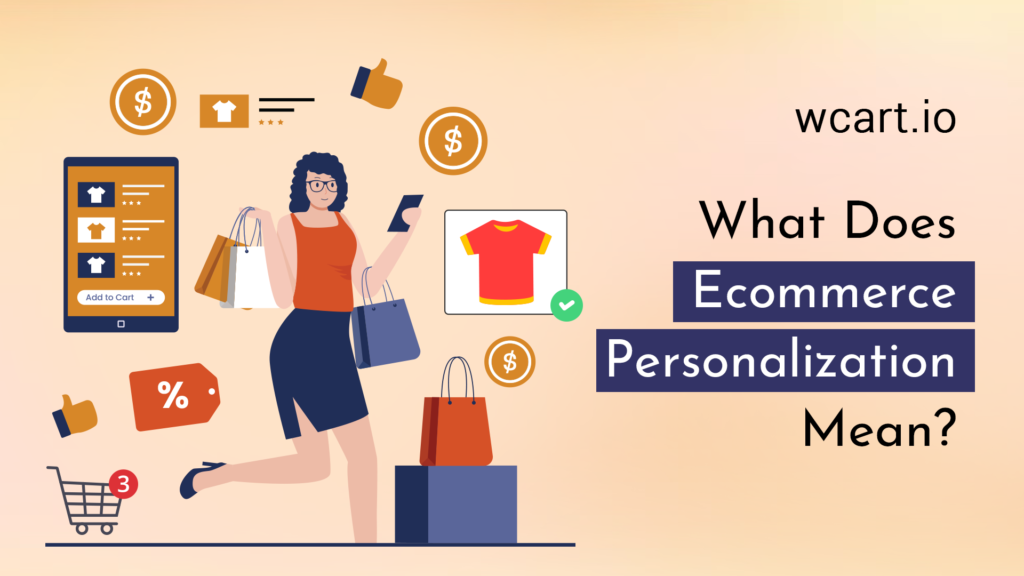
Ecommerce personalization involves leveraging customer data and behavioral insights to deliver customized content, product recommendations, pricing, and messaging. By understanding each customer’s preferences, needs, and shopping behavior, businesses can create a personalized and relevant journey that enhances the overall shopping experience. Ecommerce personalization aims to provide individualized interactions and recommendations that resonate with customers, ultimately driving engagement, conversions, and customer loyalty.
Importance Of Personalization In Ecommerce Business
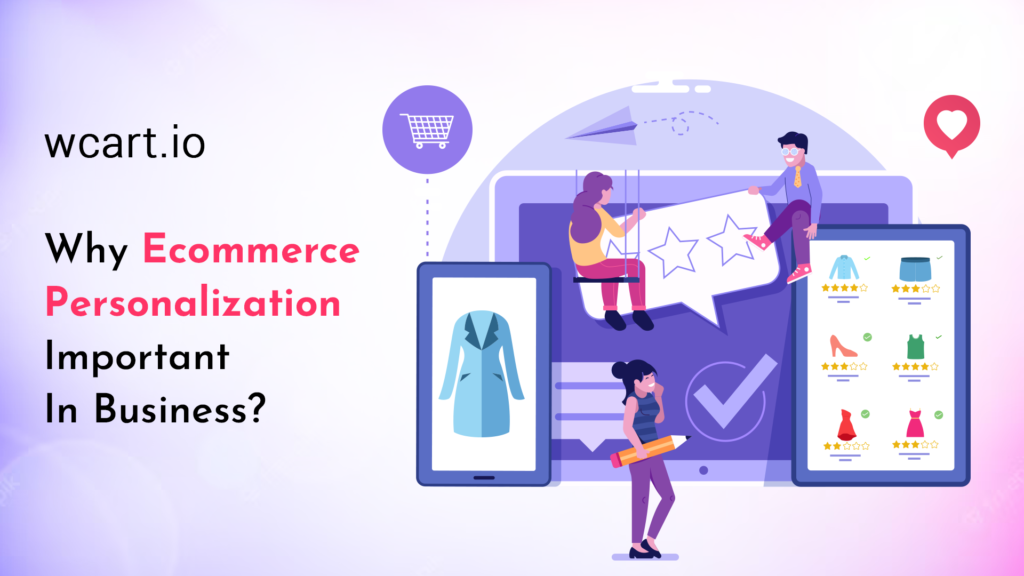
Ecommerce personalization allows businesses to stand out by providing a seamless and relevant experience that meets the expectations of modern consumers. By tailoring the shopping journey to individual customers, businesses can create a sense of personal connection and engagement, leading to increased customer satisfaction. Personalization also helps to reduce information overload by presenting customers with the most relevant products, promotions, and content, making the shopping process more efficient and enjoyable. Furthermore, personalization drives conversions and boosts revenue by delivering targeted offers, recommendations, and pricing strategies that align with each customer’s preferences and purchasing history.
Visit Here: 5 Must-Have Features to Look for in an Ecommerce Builder
Top 5 Benefits Of Personalization In Ecommerce 2023
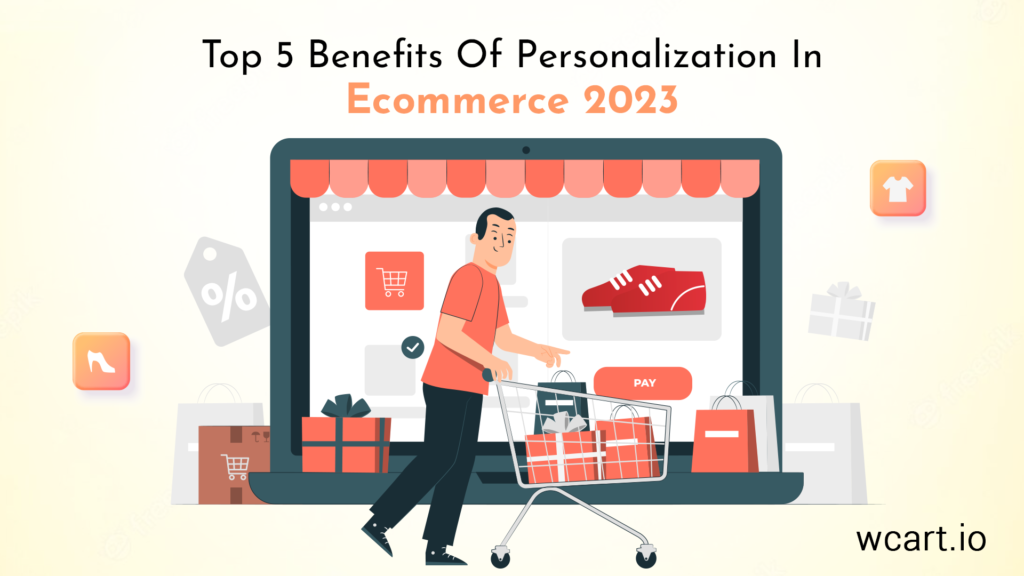
1. Enhanced Customer Experience
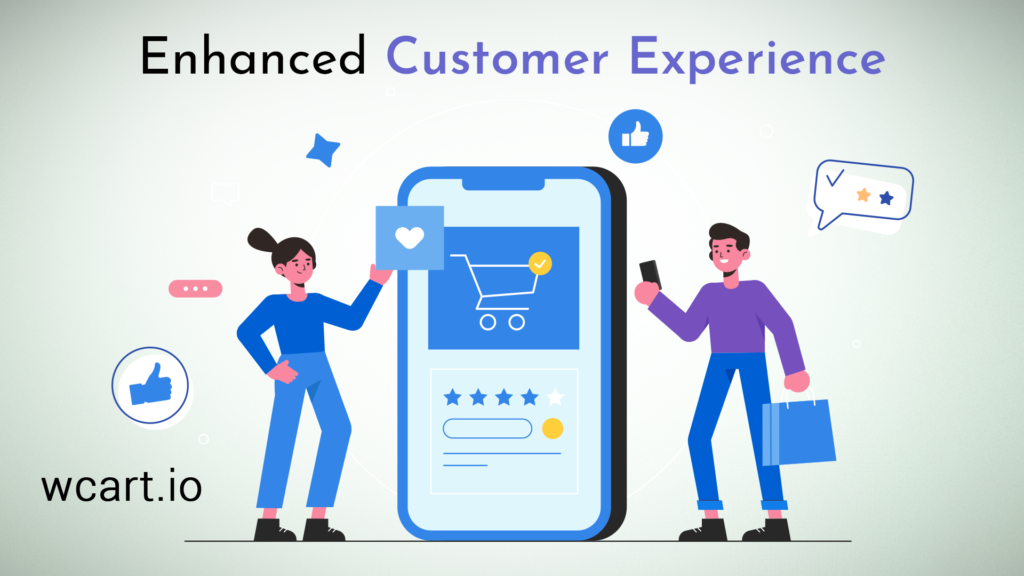
- Delivering a seamless and personalized experience is key to ecommerce success. By understanding individual preferences and needs, businesses can create a shopping journey that feels tailor-made for each customer.
- Personalized product recommendations and curated content empower customers to discover products they are likely to love, saving them time and effort in searching through vast catalogs.
- Personalized messaging and communication foster customer satisfaction by providing relevant and timely information, promotions, and updates that align with their interests and preferences.
2. Increased Customer Engagement
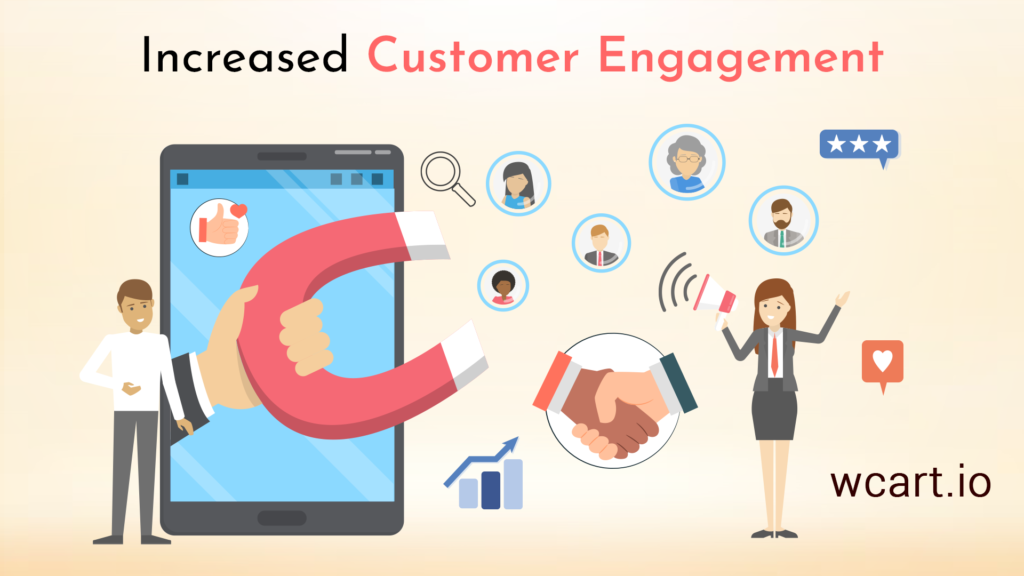
- Targeted content and recommendations based on customer data and behavior capture customers’ attention and keep them engaged with the brand. By delivering relevant and personalized content, businesses can create a deeper connection with their audience.
- Personalized promotions and exclusive offers make customers feel valued and exclusive, driving their engagement and motivating them to make repeat purchases.
- Personalization encourages repeat visits, social sharing, and user-generated content as customers find value in the personalized experiences they receive. They are more likely to share their positive experiences with others, amplifying brand awareness and attracting new customers.
3. Improved Conversion Rates
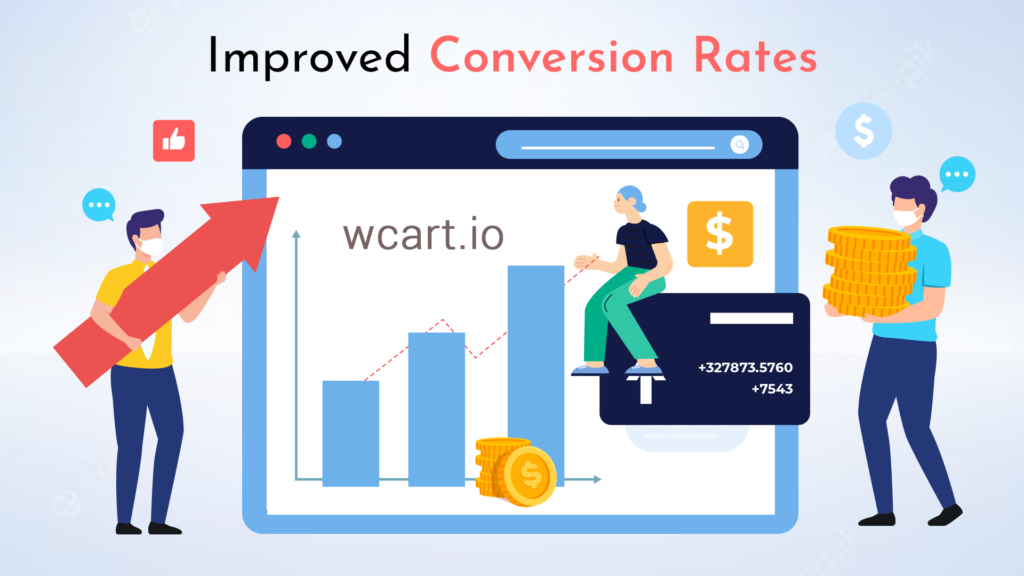
- Personalized product offerings presented at the right time and in the right context significantly increase the chances of conversion by reducing the friction in the customer journey and guiding them towards making a purchase.
- Personalized pricing strategies and incentives tailored to individual customer segments or purchase history create a sense of value and exclusivity, increasing the likelihood of conversions.
Visit Here: 12 Tips To Increase Ecommerce Conversion Rates
4. Enhanced Customer Loyalty and Retention
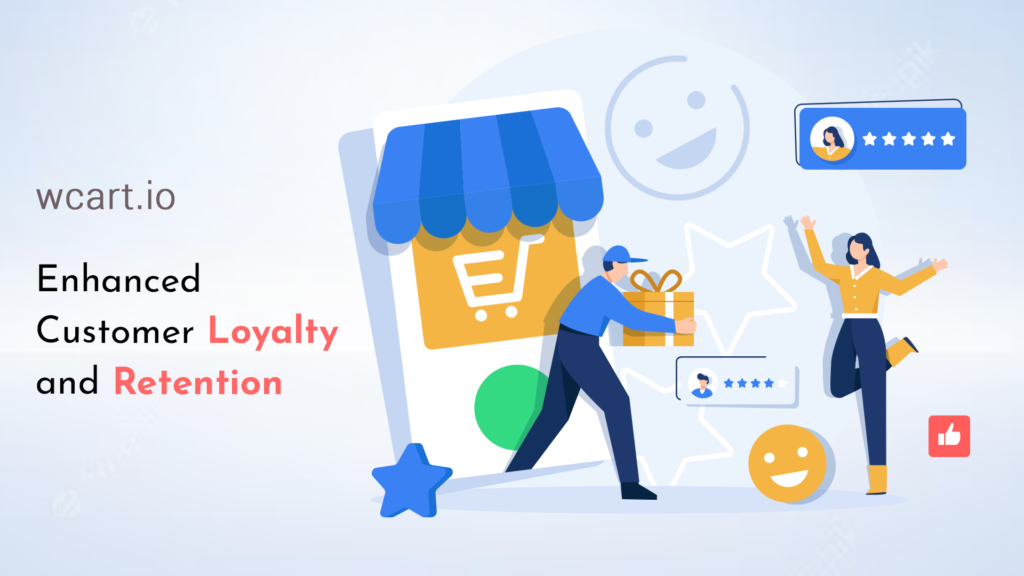
- Building customer loyalty through personalization is crucial for long-term success. By understanding and meeting customers’ unique needs, businesses can foster a strong emotional connection, trust, and loyalty.
- Personalized loyalty programs and rewards based on individual preferences and behaviors create a sense of exclusivity, incentivizing customers to stay engaged and make repeat purchases.
- Personalized post-purchase follow-ups and exceptional customer support further enhance the overall experience, leaving a lasting impression and solidifying the customer’s loyalty to the brand.
5. Data-Driven Insights and Decision Making
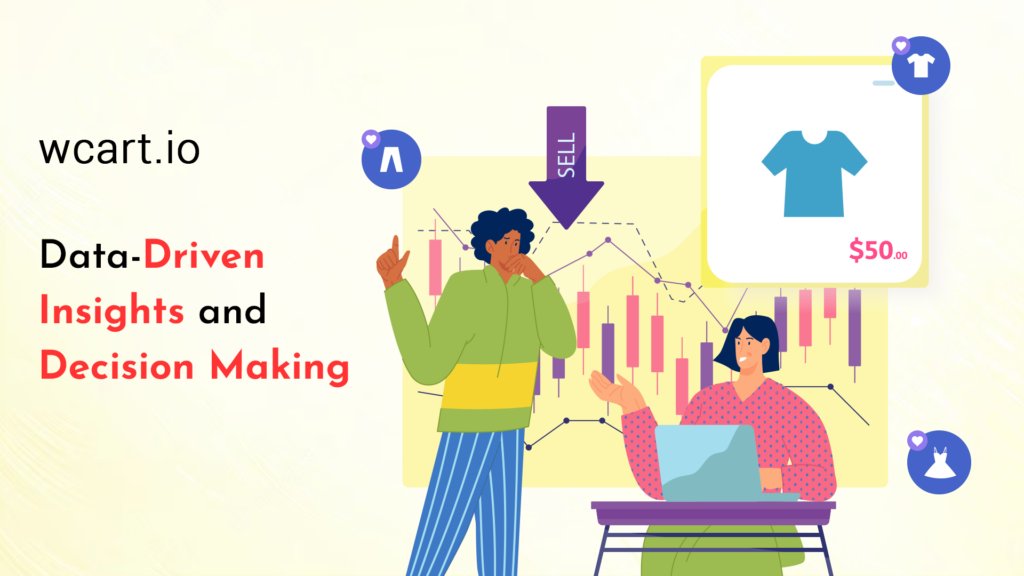
- Personalization generates a wealth of customer data, providing businesses with valuable insights into preferences, behaviors, and trends. This data acts as a goldmine for businesses, enabling them to make informed decisions and drive growth.
- Data analytics empowers businesses to optimize operations, marketing strategies, and customer experiences by uncovering patterns, trends, and areas for improvement. By leveraging data, businesses can refine and enhance their personalization strategies.
- The potential for businesses to personalize their offerings further lies in their ability to collect and analyze customer data, enabling them to stay ahead of customer expectations and deliver exceptional experiences.
8 Example Of personalization in ecommerce To Boost Profits in 2023
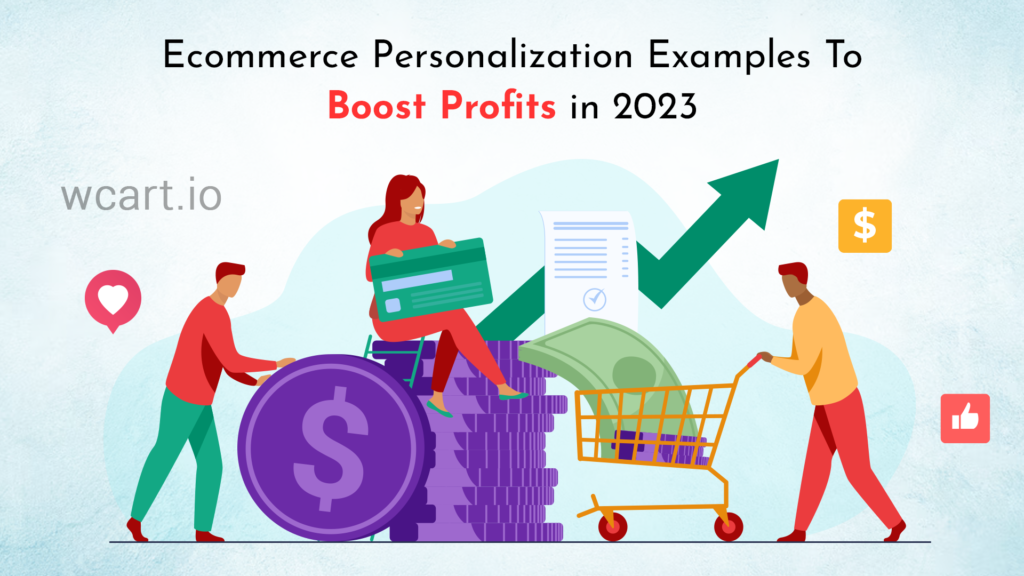
1. Product Recommendations
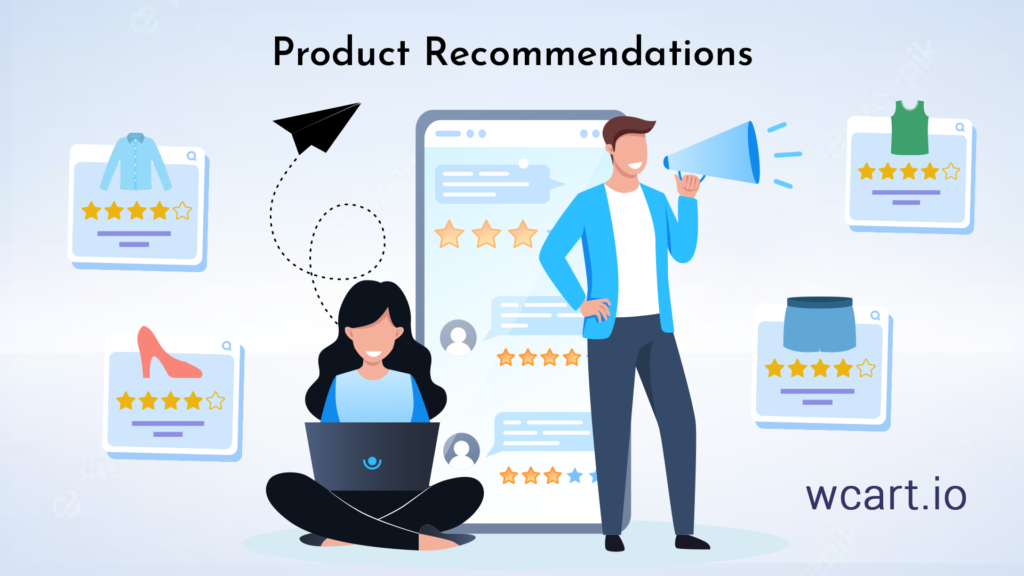
Ecommerce platforms can analyze customer data, such as purchase history and browsing behavior, to provide personalized product recommendations. By suggesting items that align customer’s interests and preferences, businesses can increase the likelihood of conversions and upselling opportunities.
2. Dynamic Pricing
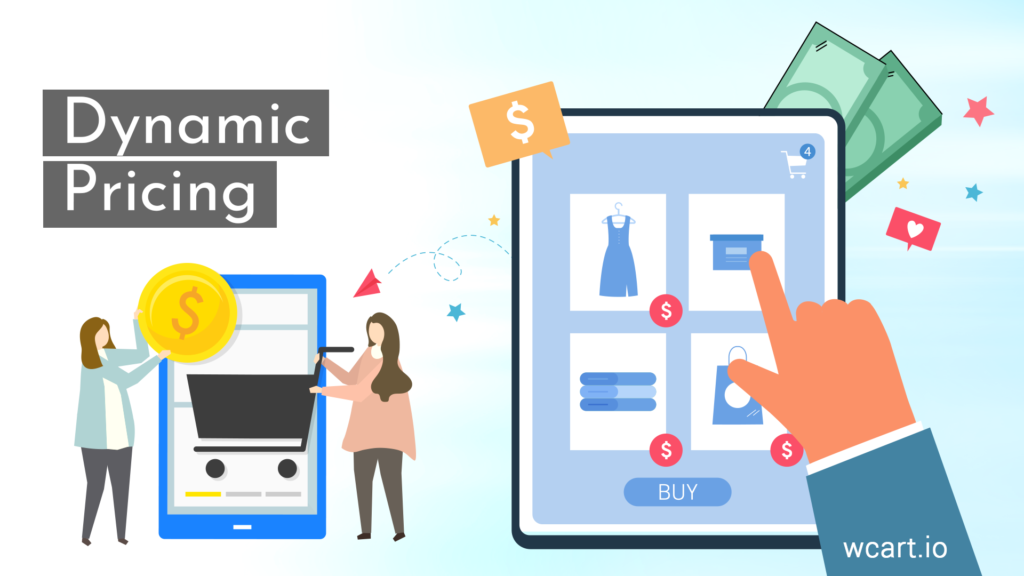
It enables businesses to implement dynamic pricing strategies based on factors such as customer segmentation, demand, and purchase history. Allows businesses to offer personalized discounts or incentives to customers, driving engagement and increasing the chances of making a purchase.
3. Customized Content
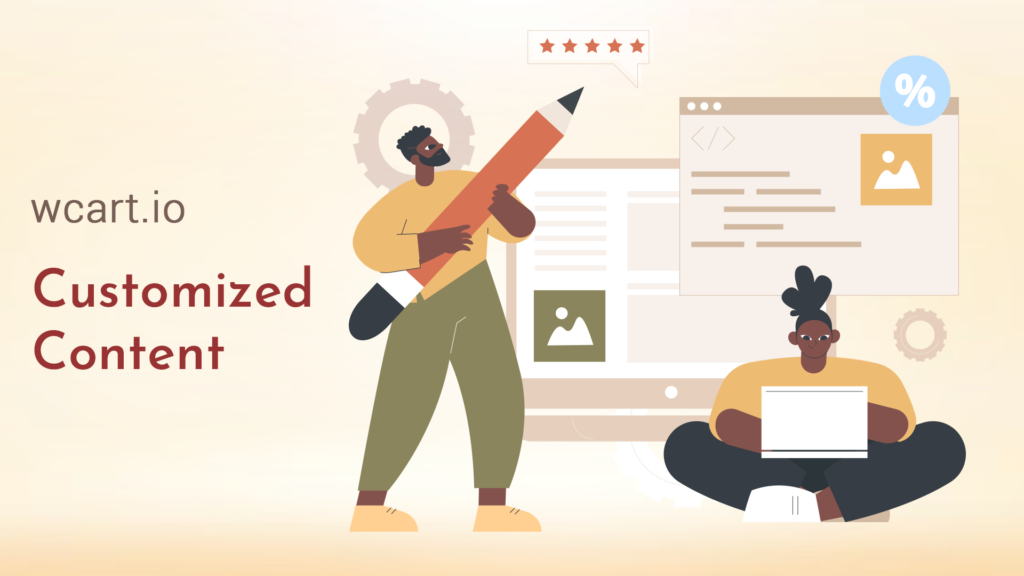
Personalized content, such as targeted email campaigns or website banners, can be created based on customer preferences and behavior. By delivering content that resonates with each customer’s interests, businesses can foster engagement, encourage repeat visits, and enhances customer experience.
Visit Here: How To Build A Ecommerce Website Like Amazon In 9 Steps
4. Personalized Loyalty Programs
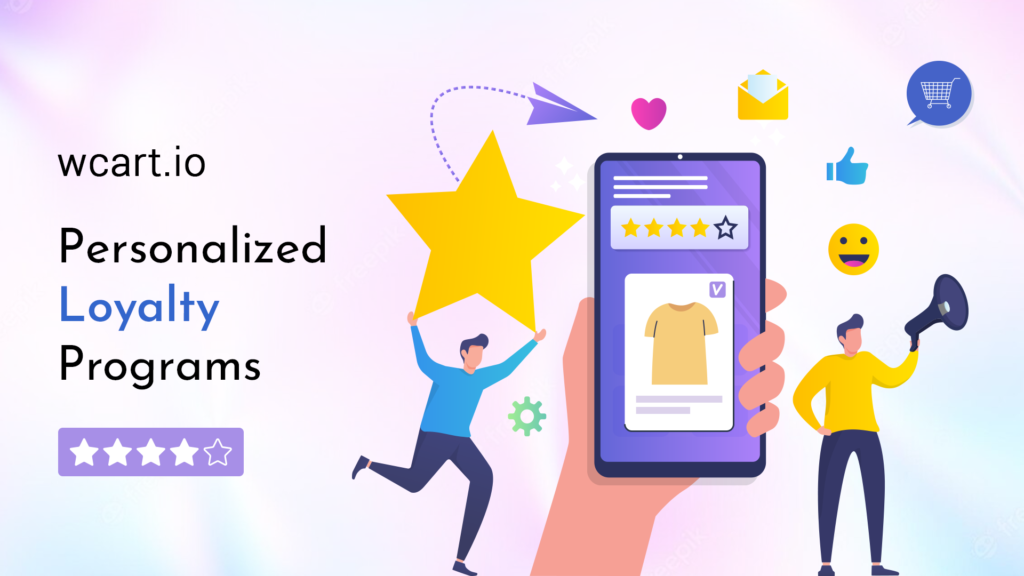
It extends to loyalty programs, where businesses can offer personalized rewards, exclusive offers, and tailored incentives based on each customer’s shopping habits and preferences. This approach increases customer loyalty and encourages repeat purchases, ultimately driving long-term customer retention.
5. Personalized Abandoned Cart Notifications
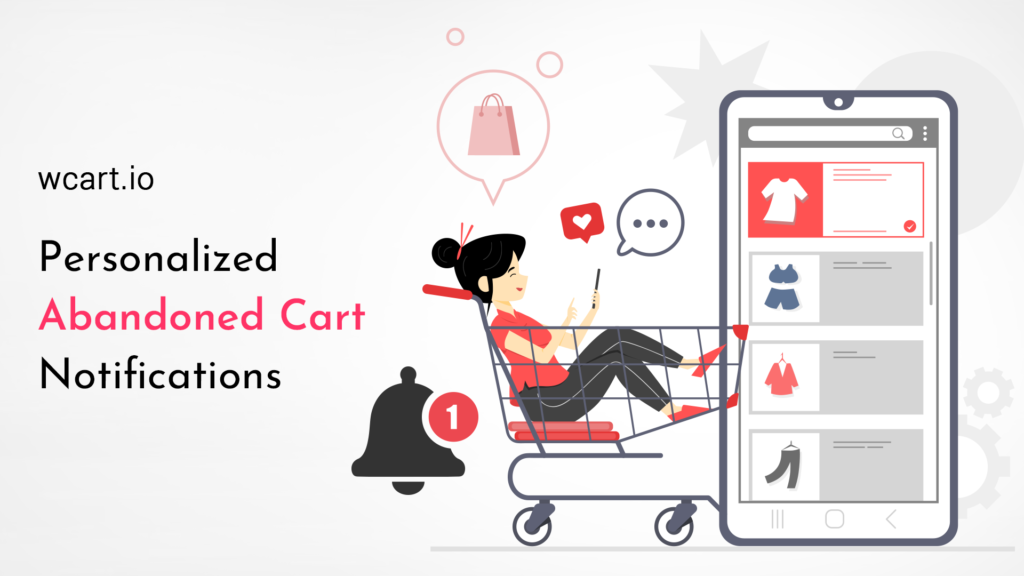
It includes sending targeted reminders to customers who leave items in their shopping carts. Using customer data, businesses send personalized notifications with incentives like discounts to encourage customers to complete their purchase, increasing the chances of conversion.
6. Customized Website Experience
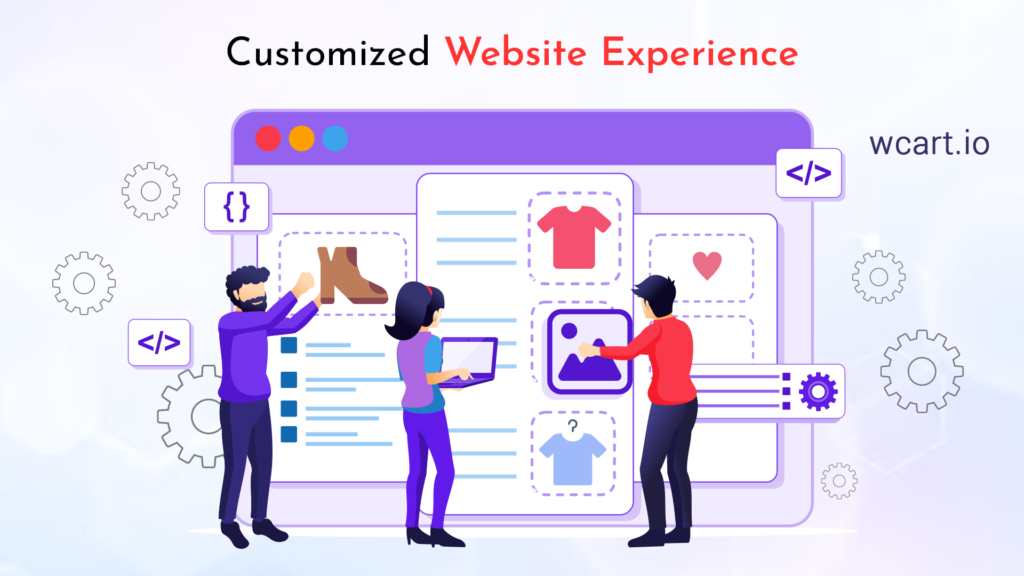
It extends to creating a personalized website experience. By using customer data and preferences, businesses adjust the website layout, product displays, and content to match individual preferences. For example, returning customers receive personalized welcome messages and recommended products, improving engagement, navigation, and conversions.
7. Personalized Email Campaigns
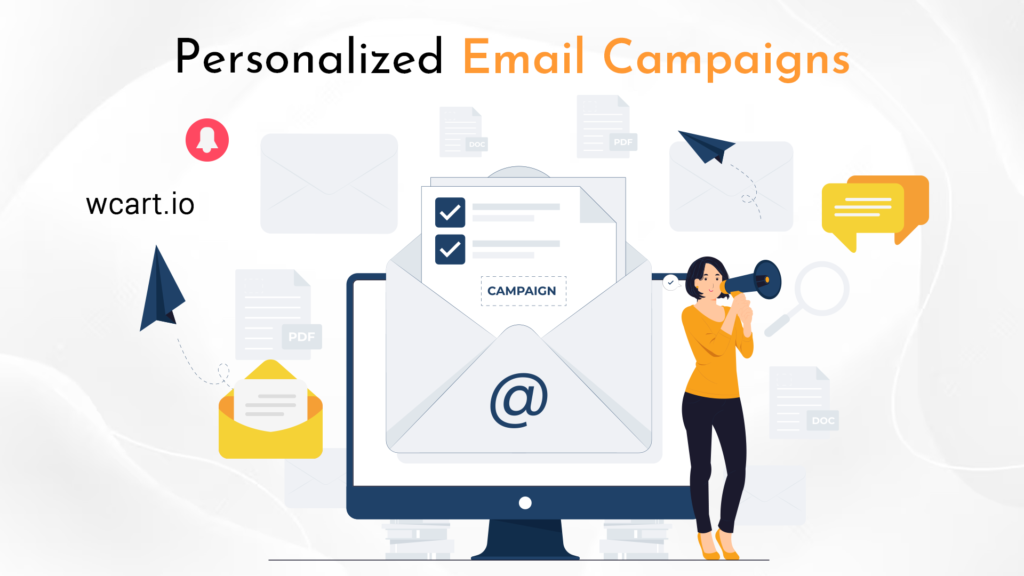
It includes sending targeted email campaigns based on customer behavior and preferences. By segmenting customers and delivering personalized content, such as product recommendations or exclusive offers, businesses can increase email engagement and conversion rates.
8. One-to-One Customer Support
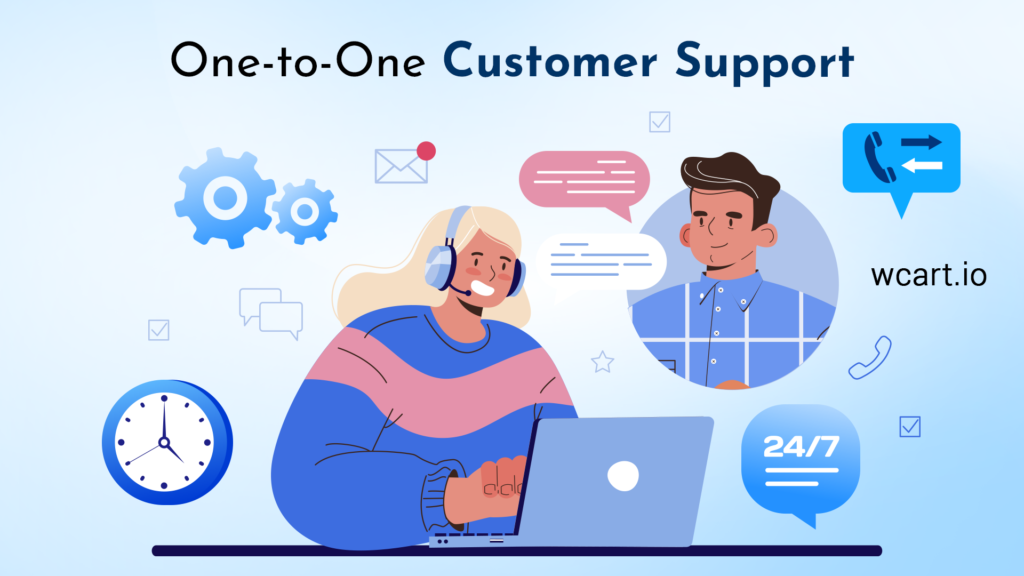
It extends to customer support, where businesses can offer personalized assistance through live chat or chatbot interactions. By understanding each customer’s unique needs and providing tailored recommendations or solutions, businesses can enhance customer satisfaction and build stronger relationships.
Visit Here: Top 17 Essential Ecommerce Website Features 2023
Conclusion
In conclusion, benefits of personalization in ecommerce is not just a trend but a necessity for businesses in 2023. Recent study stated, companies implementing effective personalization strategies experience a 20% increase in sales and 10% growth in customer loyalty. With Wcart empower your businesses to deliver tailored experiences, embracing personalization is crucial for driving customer engagement, conversion rates, and long-term success in the ever-evolving ecommerce world. Contact Wcart Ecommerce experts to know more about ecommerce personalization ideas.
Frequently Asked Questions(FAQs)
1. What are the benefits of personalization in ecommerce?
Enhanced customer experience, increased conversion rates, improved customer loyalty, reduced cart abandonment, and boosted customer satisfaction.
2. How does personalization enhance the customer experience in ecommerce?
By offering tailored product recommendations, personalized offers, and relevant content based on individual preferences and browsing history.
3. Can you provide an example of personalization in ecommerce?
Customized product recommendations, personalized email campaigns, and personalized landing pages based on customer preferences and past purchases.
4. How does personalization increase conversion rates in ecommerce?
By presenting customers with personalized product recommendations and offers that align with their preferences, increasing the likelihood of a purchase.
5. How does personalization improve customer loyalty in ecommerce?
Consistently delivering personalized experiences builds a sense of connection, encouraging repeat purchases and fostering long-term customer relationships.
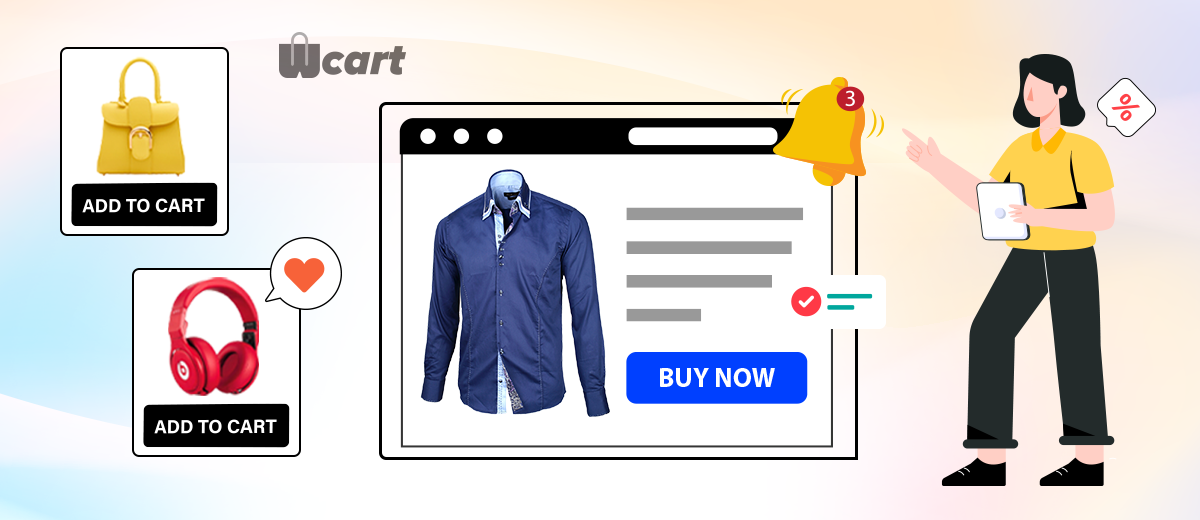



Leave a Reply